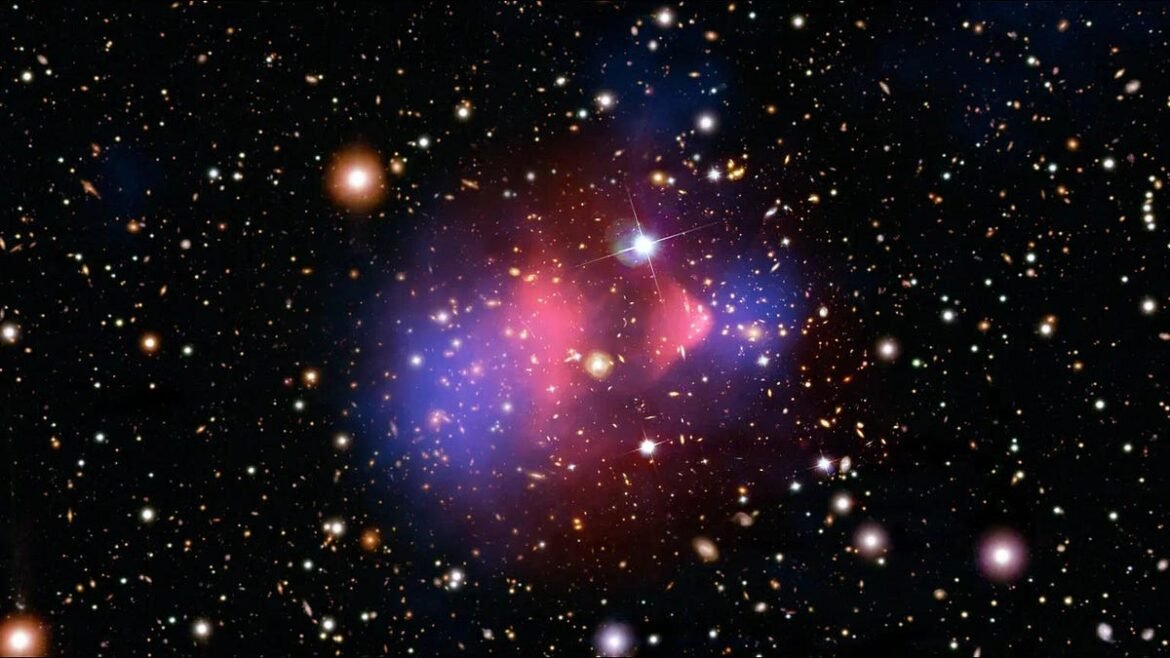The Bullet Cluster has, for nearly 20 years, been hailed as an empirical “proof” of dark matter. Can their detractors explain it away?
It’s one of the most well-accepted ideas in the Universe, and yet one of the most controversial: the notion of dark matter. Here in the Solar System, the Sun and planets are enough to explain all of the gravitational effects that we see: simply use the law of General Relativity and what you predict matches what you observe exactly. But on larger scales — the scales of galaxies, groups and clusters of galaxies, and even the grand cosmic web — the normal matter that we know of, including everything made of protons, neutrons, and electrons, simply isn’t sufficient to explain what we observe. Some other massive ingredient, i.e., dark matter, is needed to bring things back into alignment.
On the scale of a single galaxy and below, other explanations, such as modifications to gravity, are just as successful as dark matter, with MOND being a prime example. In fact, tests of wide binary stars may soon be able to test these ideas against the notion of dark matter directly. But on larger cosmic scales, such as the scales on which clusters of galaxies collide, those same modifications of gravity are no…

